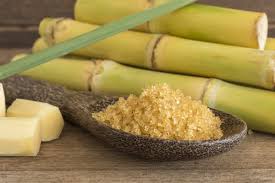Brazil sugar output to reach the lowest level in the last 10 years — S&P Global Platts

Brazil sugar production between April 1 and November 16 would reach 25,13 million tonnes, decreasing 27% year on year. That would be the lowest for the period in 10 years, since the 2008-09 crop.
It is reported by S&P Global Platts.
The amount of sugarcane crushed in the first half of November in Brazil's key Center-South region was expected to be 21,1 million tonnes, down 10% year on year and 15% lower than the previous two-week period.
The lower volume of sugarcane was a result of the continued rains in the region and as the end of the crushing season approached, sources said.
If analysts' expectations were realized, the cumulative cane crush thus far this season would reach 539,43 million tonnes, down 4,6% year on year.
As a result, sugar production was expected to total 777,400 tonnes in H1 November, down 38% year on year and 19% lower than H2 October.
Hydrous ethanol output in H1 November is expected to reach 816 million liters. This would be a surge of 39,5% from a year ago but almost 16% lower from H1 October. This would be the lowest since the start of the season in H1 April.
Based on the analyst survey, April 1-through-November 16 cumulative hydrous ethanol production would be 45,5% higher than the year-ago period at 19,43 billion liters.
The volume was a new all-time high to date and already exceeds the total volume produced in the entire season of 2010-11 when a record 17,97 billion liters have been reached.
As for anhydrous, its ethanol output in H1 November was expected to reach 314 million liters. This would be a plunge of 32% from a year ago and down 21% lower from H2 October. It would be the lowest since the start of the season.
Based on the analyst survey, April 1-through-November 16 cumulative anhydrous ethanol production would be 15% lower than the year-ago period at 8,6 billion liters.
The volume would be the lowest for the period since the 2012-13 season, when only 7,9 billion liters were produced.